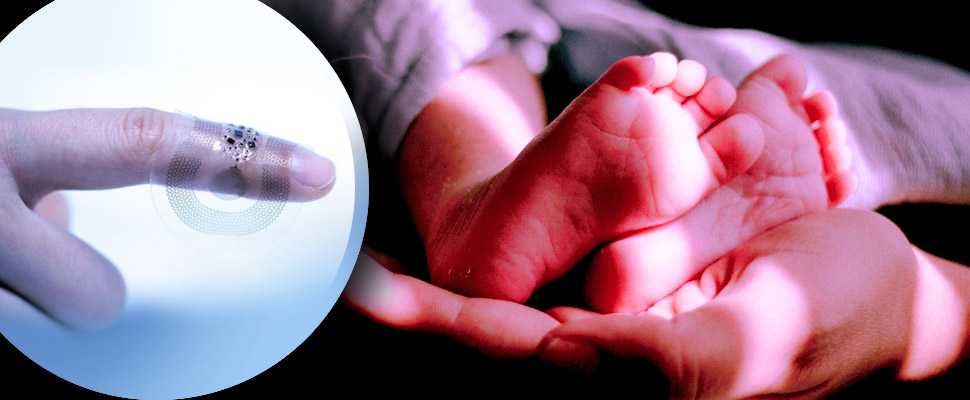This technology will allow you to be closer to your premature newborn
Listen this article
The new sensors in cribs for premature babies aim to improve the quality of life of them and their parents

A premature newborn requires a lot of care and attention, and in the first days (or even weeks) that can remain inside the incubators, the number of tubes and devices they connect to become emotionally exhausting for their parents.
Leer en español: Esta tecnología te permitirá estar más cerca de tu recién nacido prematuro
This is why a group of researchers in Illinois, United States, developed a sensor that does not need to be directly in the body, connected through cables but is located under the mattress of the crib. The sensor allows doctors to monitor the baby at all times through an application that downloads on smartphones and tablets.
One of the sensors is in the cradle, which is the one that helps monitor everything and has two others that do not need any cables to connect, but are transparent patches that adhere to the skin. These facilities are to favor parent-child contact. According to doctors, one of the best tools for a premature newborn baby to be healthy is to have physical contact with their parents, especially their mother, because of the bond they have had during the months of pregnancy.
John A. Rogers, one of the project leaders, said, according to the website Babies and More: "We wanted to eliminate the mess of aggressive cables and adhesives associated with existing monitoring systems and replace them with something safer, more patient-centered and more compatible with the interaction."
These new sensors will also be more effective than the current model. In addition to monitoring heart rate, respiratory rate, body temperature, and blood oxygen levels, blood pressure, blood flow, and baby development can be measured during interactions with their parents. As for body temperature, you can measure it more precisely since it varies between the chest and the foot, where you will have the two sensors.
Read also: These are the 4 innovative Apple releases
Although the prototypes have already come out, Science magazine estimates that in two or three years they will be normally used in the United States. However, it is not known when they will be for the rest of the world. On the other hand, there is an intention to take these sensors to countries with more economic difficulties so that babies can ensure correct treatments, such as India or Pakistan. Besides, according to the WHO, 60% of premature children are born in Africa and South Asia, so bringing the devices to these regions would be of great help.
The device will come out with meager costs compared to the current monitors since it only needs the patches and works with any device that already has it. The patches, according to Bebés y Más, will cost 9 euros.
Other technologies
Currently, there are some new technologies for premature newborns. Although they focus on different types of benefits, many of them have to do with the incubators in which they have to stay in the beginning.
In Mexico, researchers created a smart crib that allowed more accurate monitoring of the baby, in addition to being thermal so the baby's temperature was always constant, something that does not happen in premature newborns, who find it difficult to maintain correct body temperature. This cradle also allows monitoring the weight of the baby, and it gives results in real time.
In India, an incubator similar to the Mexican one also went on sale, "the design includes graphic warnings and color codes so that even illiterate rural health workers can operate the machine," according to Semana. Also, this cradle is also thermal and consumes less energy, generating cost savings in hospitals. Since 2009, this cradle, of the GE Healthcare brand, is on sale in more than 80 countries around the world
LatinAmerican Post | Juliana Suárez
Translated from "Esta tecnología te permitirá estar más cerca de tu recién nacido prematuro"




